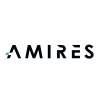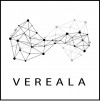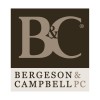National Standard Developing Organisations
Many countries have their own standard developing organisation and often have mirror committees for the ISO and CEN technical committees in nanotechnology. Some examples of national standards bodies can be found below.
United States
In the United States, the American National Standards Institute's Nanotechnology Standards Panel (ANSI-NSP) serves as the cross-sector coordinating body for the purposes of facilitating the development of standards in the area of nanotechnology. It was established in 2004 and provides the framework within which stakeholders can work cooperatively to promote, accelerate and coordinate the timely development of voluntary consensus standards that are intended to meet identified needs related to nanotechnology research, development, and commercialisation.
ASTM International, formerly known as as the American Society for Testing and Materials, is another American standards developing organisation. ASTM International's Committee E56 on Nanotechnology was formed in 2005 to address issues related to standards and guidance materials for nanotechnology and nanomaterials, as well as the coordination of existing ASTM standardisation related to nanotechnology needs.
UK
The British Standards Institution (BSI) has founded its committee on Nanotechnologies (NTI/1) in 2004. It chairs ISO/TC 229 and mirrors the work of CEN, ISO and IEC committees on nanotechnology and that of other relevant committees. NTI/1 has also developed a number of national documents, which can be viewed and downloaded from their website.
Germany
In Germany, Deutsches Institut für Normung e. V. (DIN) also has a committee on Nanotechnologies (NA 062-08-17 AA) which reviews the work of ISO/TC 229 and that of other relevant committees such as CEN/TC 352.
France
The French Standardisation Agency (AFNOR) is now chairing the European CEN/TC 352. It also has a technical committee on nanotechnologies and nanomaterials (AFNOR/X457).



















